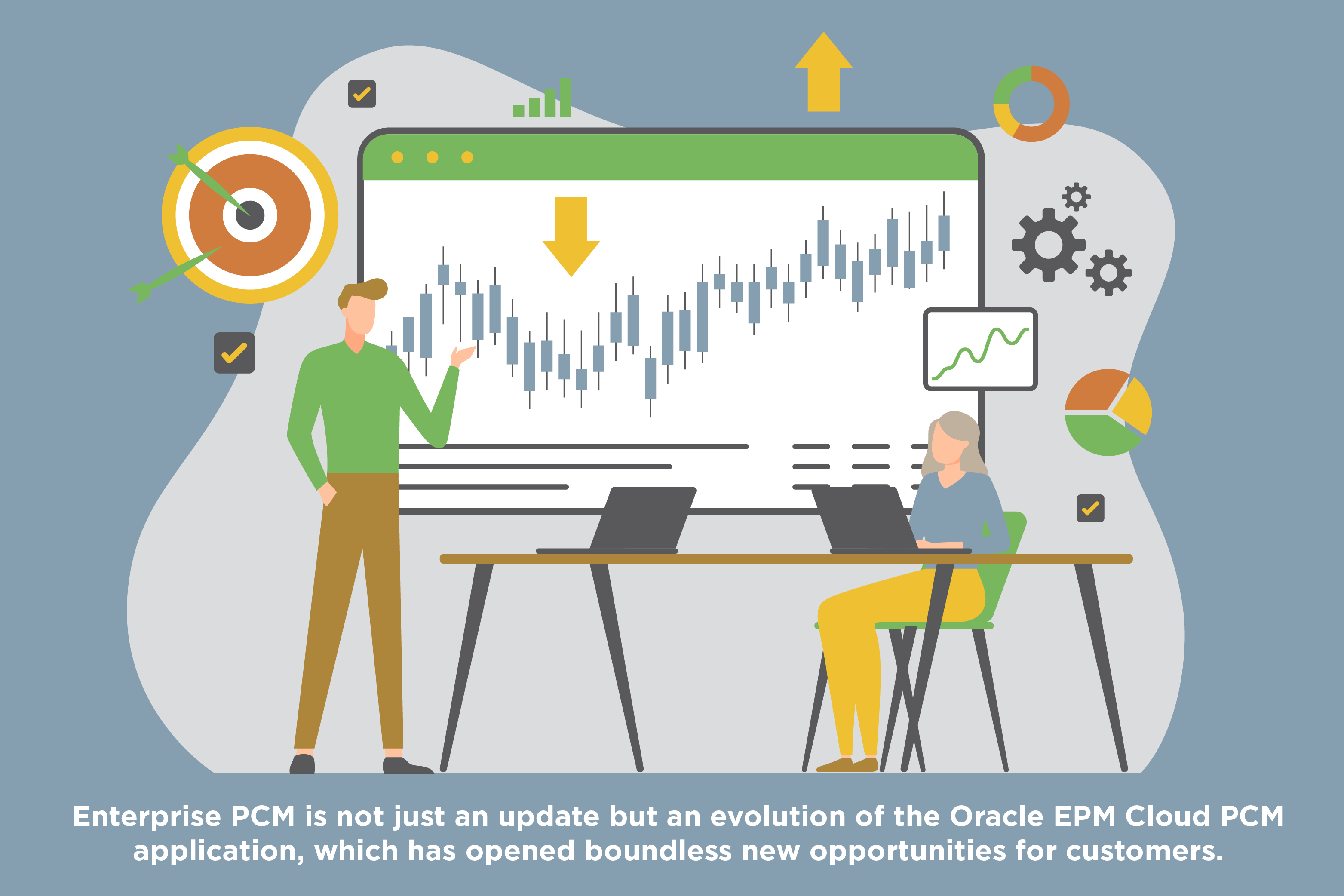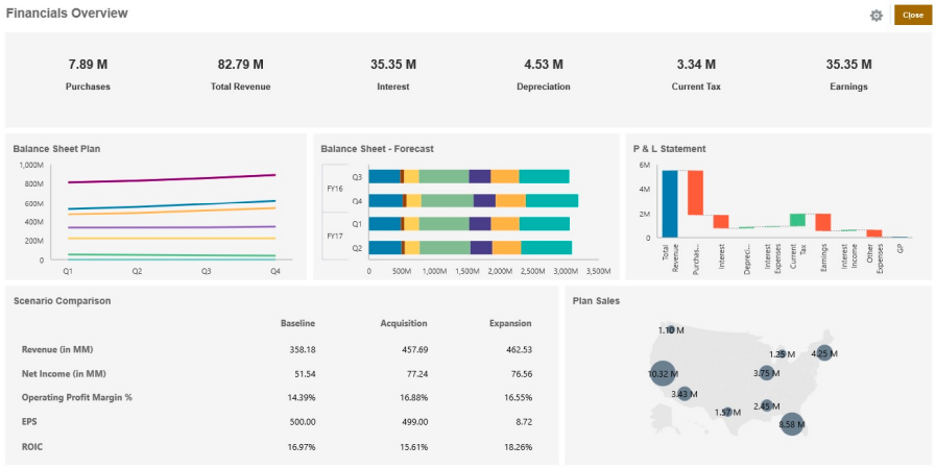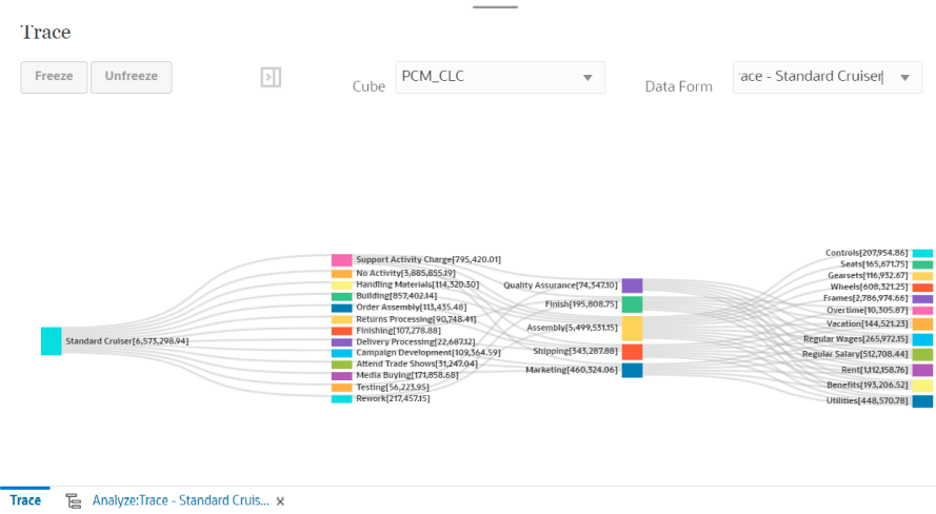Profitability and Cost Management (PCM) has always been a crucial part of the Oracle EPM (Enterprise Performance Management) suite. With the latest June 2022 update, Oracle has announced the launch of a new iteration of the PCM solution — Enterprise Profitability and Cost Management (Enterprise PCM). This blog highlights the key new features of Oracle EPM Cloud’s Enterprise PCM and how it differs from earlier versions, including:
Common EPM Platform:
Then: Oracle Cloud PCM was developed on an independent platform.
Now: Enterprise PCM is an integrated part of the common EPM platform.
Business Impact: Oracle Planning, FCC (Financial Consolidation and Close), and other EPM applications (except PCM) have had similar, standard approaches for several functionalities, such as the application, dimension-metadata management, and data management processes. This move now adds the Oracle Enterprise PCM application to the list, which will help customers get accustomed to a single UI for these tasks.
Additional ASO Database Cubes:
Then: Oracle Cloud PCM had a single ASO cube.
Now: Enterprise PCM comes pre-loaded with one calculation and one reporting ASO cube. It also allows the creation of up to three additional ASO cubes.
Business Impact: Proper utilization of reporting and calculation cubes will optimize overall performance. You can also use custom cubes for managing drivers or other data-enabling system administrators to organize data.
Data Forms to Load and Manage Data:
Then: Legacy data management, native file load, and the Essbase plugin of SmartView were used to load or manage data for analysis.
Now: In addition to the above options, admins create customizable data forms, EPM agent, data exchange, and data maps. The platform plugin of Smart View is also available, like other Oracle Cloud EPM applications, model views are discontinued.
Business Impact: Until now, data forms have been a significant missing piece for data collection and analysis. For example, whenever the driver data collection from various stakeholders is needed, users have had to rely on native data load, data management, or a planning application. Including data forms in Enterprise PCM eliminates the reliance on multiple instances/environments and reduces the maintenance required for data security and cross-application integration. With Enterprise PCM, you can also leverage an additional ASO cube to manage driver data and organize the overall solution more efficiently.

Rules and Rule Sets Management:
Then: Rules and rule sets were created as a part of PCM’s Point of View (POV), which determines what data to retrieve for allocations.
Now: Allocation and custom rules, as well as rule sets, will be created as part of the model.
Business Impact: You can now create multiple models for different allocation scenarios. You can also run a model against one or more data POVs together. With Enterprise PCM, you can avoid making numerous copies of the same rules across POVs. Moreover, the rule name will now be the rule member name instead of the rule ID, which will help business users to analyze allocation results effortlessly in SmartView.
Reporting and Analytics Updates:
Then: Native PCM dashboards and financial reporting for data analysis were necessary.
Now: New options are available for using the EPM Platform analytics tools, including Dashboards 2.0, Infolets, and Forms. Analysts can establish a connection to Oracle Analytics (OAC) to prepare data visualizations and dashboards. In addition, management reporting is now available with Enterprise EPM, as is Advanced Trace Allocation.

Source: Admin guide for Enterprise PCM
Business Impact: This opens the floodgates of new functionalities in reporting and analytics within the PCM solution. Data transparency and reliability have always been vital for all versions of PCM solutions. Management reporting, previously available only in Narrative Reporting and other EPM tools, will help analysts to generate reports without experience with Essbase, scripting syntax, or programming languages. The advanced multi-step Trace Allocation feature will aid business users in tracing the allocated numbers and visualizing data relationships across multiple dimensions.

Source: Admin guide for Enterprise PCM
Apart from these innovations, many other capabilities have been added to Enterprise PCM, including custom navigation flows, substitution variables, additional security, valid intersections, and more. Enterprise PCM is not just an update but an evolution of the Oracle EPM Cloud PCM application, which has opened boundless new opportunities for customers.
Inspirage can help
The seasoned professionals on the Inspirage Finance/EPM team are cloud-certified and specialize in solving fragmented and complex reporting and business analysis solutions. We facilitate your transformation to a modern finance solution that integrates your ERP systems by accurately aligning the facts with projections to drive world-class finance initiatives and business growth. Our Strategic Advisory Services can help customers evaluate the pros and cons of staying with on-premises apps versus moving to the cloud, and our Managed Services professionals ensure the success of your EPM and BI solutions well beyond the implementation phase. For additional information about Oracle EPM Cloud and to learn more about how Inspirage can help your business digitally transform its finance operations, please contact us today.
As the Integrated Supply Chain Specialists, with recognition from Gartner, IDC, and winners of Oracle’s 2021 Game Changer Award for SCM Service Delivery Partner of the Year, Inspirage is uniquely qualified to be your success partner. Whether you are upgrading your on-prem system or have decided to move to the cloud where continuous improvement is built-in, our team is prepared to guide you on your transformational journey.
